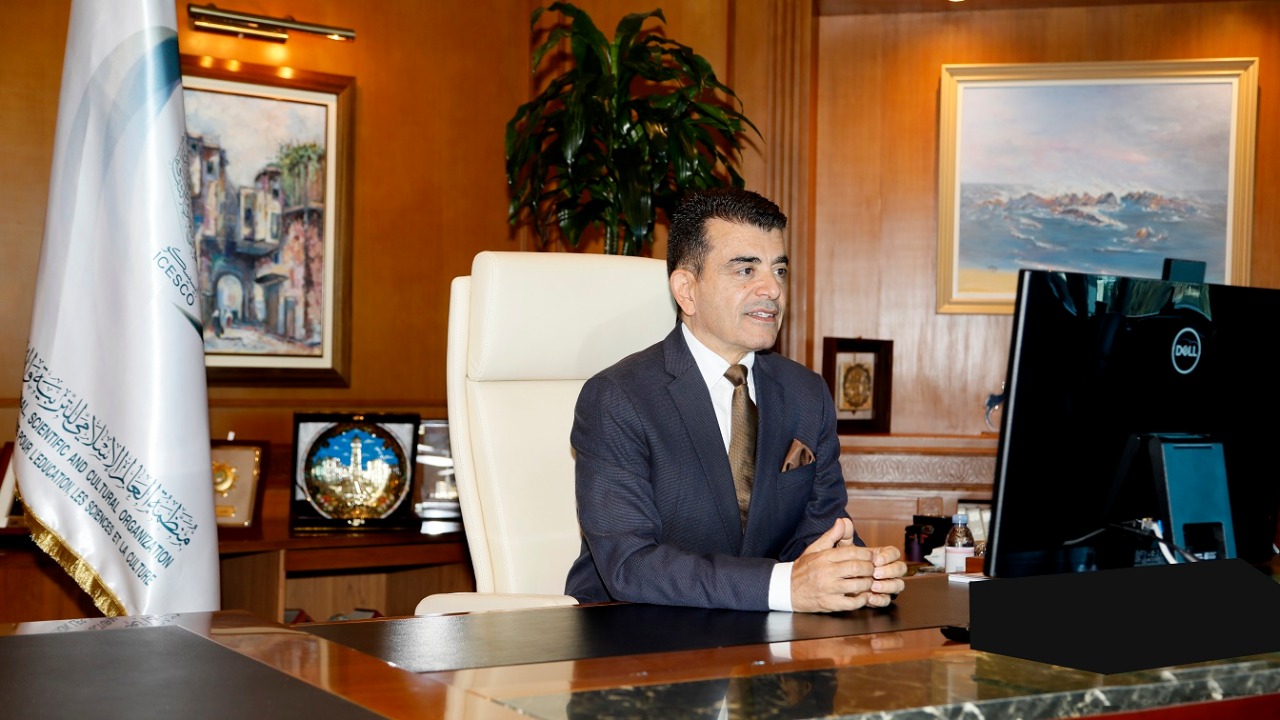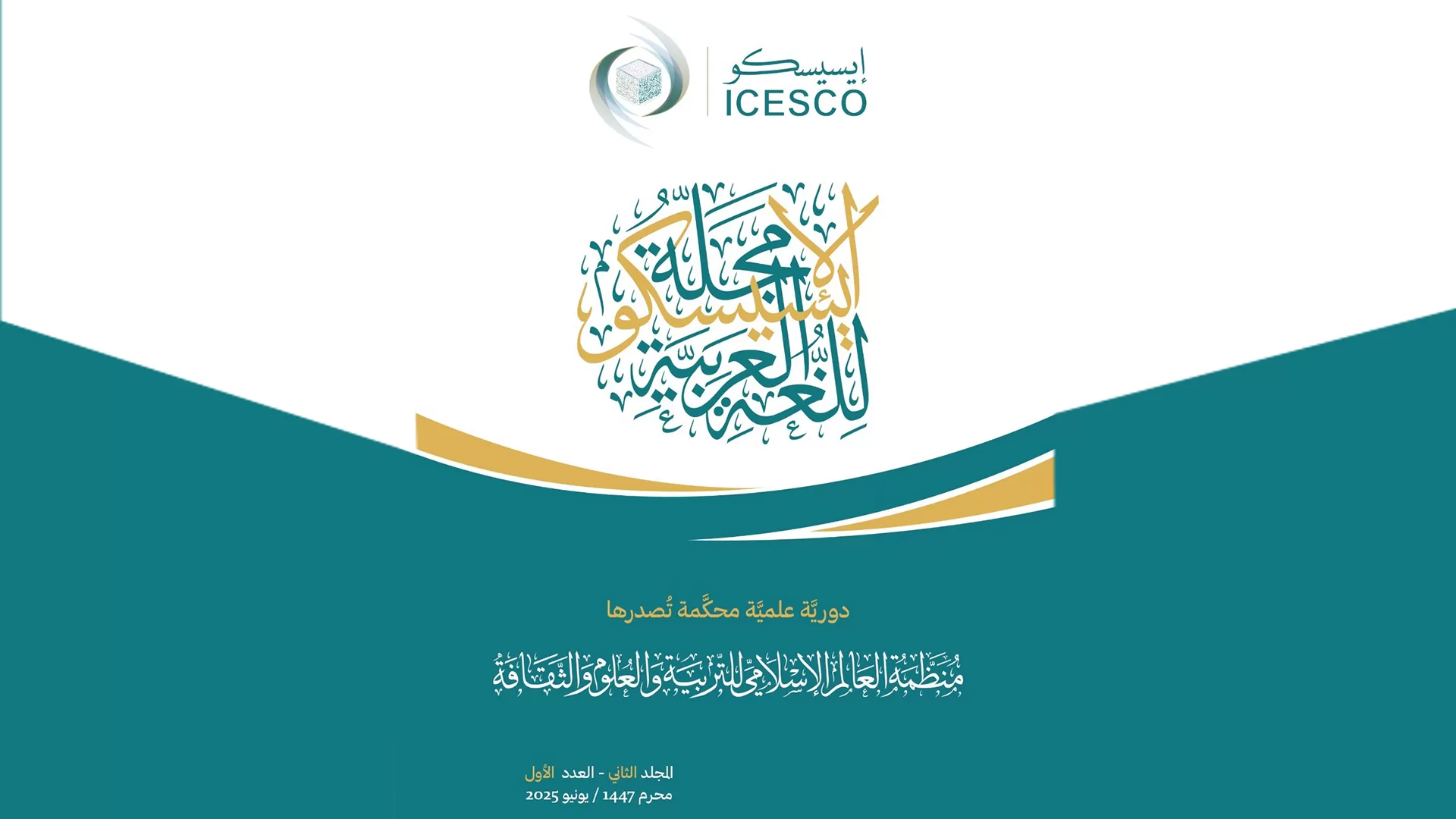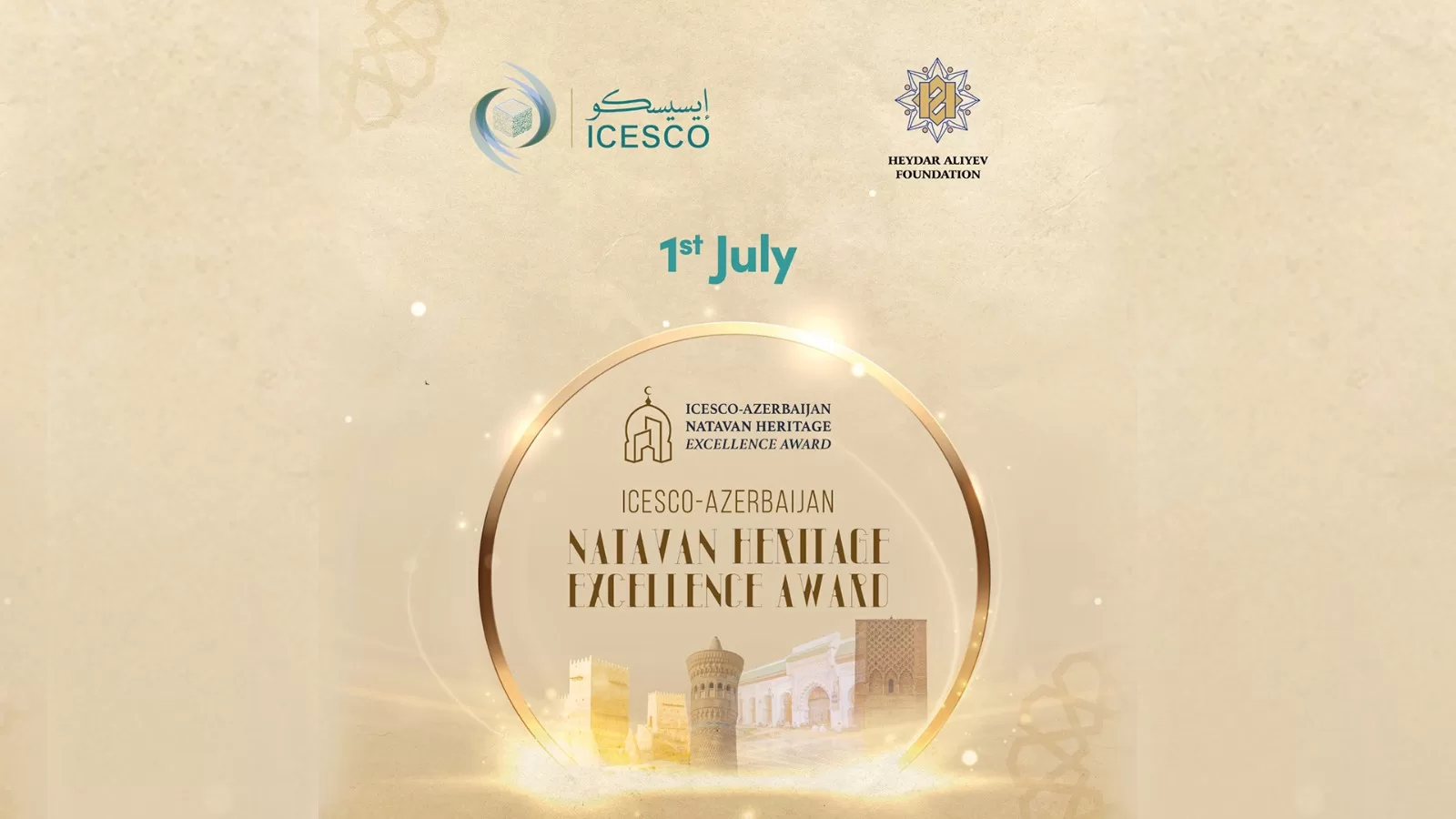
ICESCO DG Pays Tribute to Philosopher Muhammad Iqbal and Calls for Promoting Values of Muslim Ummah

10 November 2020
Dr. Salim M. AlMalik, Director-General (DG) of the Islamic World Educational, Scientific, and Cultural Organization (ICESCO), called on Muslim countries to seek the renewal, enlightenment, and the values to restore the glories of the Ummah. He proposed critical thinking, action, peace, and tolerance as well as a strong contribution to progress and development as a means of achieving the glory. He also called for rejecting all forms of violence, extremism, and intellectual stagnation, which he asserted to have no connection with Islam and the message of the Prophet Muhammad (PBUH).
The statement was part of the DG’s address at the opening session of the International Virtual Conference on “Tolerance and Foresight of Muhammad Iqbal.” ICESCO held the event yesterday, November 9, to pay tribute to the late Dr. Muhammad Iqbal (1877-1938), who is one of the prominent and high-level philosophers, poets, and literary figures in Islamic history.
The conference was part of ICESCO’s activities to publicize the efforts of prominent scientists and intellectuals. The Organization also aimed to capitalize on the figures’ achievements and values to promote scientific and cultural scenes and build a brighter and more prosperous future for the Islamic world.
Dr. AlMalik made it clear that the challenges facing the Islamic world require an intellectual renaissance, such as the one that Muhammad Iqbal launched through his ideas and perceptions that still apply to our modern times.

“We should join our efforts to reject the negative phenomena in our Islamic societies to lead the change and fight against intellectual stagnation and fanaticism through tolerance and embrace of the future and self-development,” added Dr. Al-Malik.
The DG also stated that “Iqbal considered renewal to be a spiritual mission based on the renewal of soul, thought, and ethics. Through his love for Islam and the Muslim Ummah around the globe, Dr. Iqbal strived to enlighten minds and hearts to develop the Islamic world after its collapse in the colonial era.”
“Iqbal has become a model for the Muslim who is proud of his religion, values, and morals. He left us a great intellectual heritage which has an impact inside and outside the Islamic world,” continued the DG.
Dr. AlMalik stated that Dr. Iqbal had a strong belief in the important impact of religion on human souls as a stimulus for individuals and groups to build a more prosperous future.
“His philosophy earned him a position among the intellectuals who were ahead of their times. He based his anticipatory theory in reform, renewal, and the relationship between Islam and time on two foundations: thorough intellectual criticism of the world as a whole and the Islamic world in particular, and construction through Muslims’ self-awareness and their perception of the surrounding environment and the content of the noble message of Islam,” underscored Dr. AlMalik.
Dr. AlMalik stressed that the forum is just the beginning of other activities to shed light on the great intellectuals in Islamic history and benefit from their innovations and perspectives. The goal of the initiative is to promote societies, build the future, and revitalize and disseminate the peaceful messages of Islam as a religion of tolerance and its noble ethical values.




